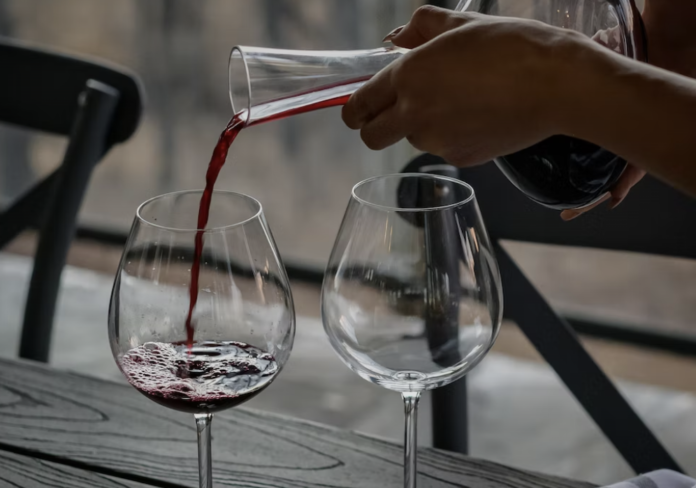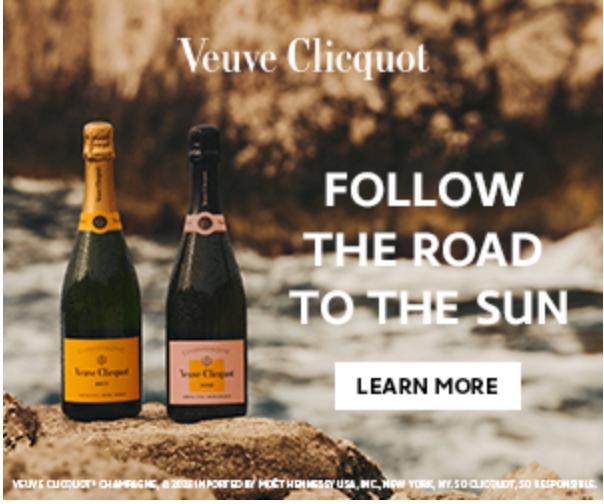Wine Pro Etti Edri Reveals the Perfect Wines for Passover
Carmel Winery’s Etti Edri had a few minutes to stop by and talk about Passover, her favorite wines and some incredible family meals to pair with those wines.
Carmel Winery has great wines for Passover. Tell us about them
When you are a winery that produces one for 140 years and Rothchild has been so happy and proud about us, we always have to mention him. I always love mentioning the consecutive harvests that we carry.
It’s not an easy thing, especially not in Israel, especially during the Muslim era, especially when, during the Ottoman era, we continue to produce great wine in Israel, which is a great thing.
And I am privileged to work in such a winery that, the first Prime Minister of Israel used to work there. So this is a great thing. It’s not just the history of it all, but it’s also the one-step-after-the-other, it never stops, we’ve been continuously working.
It’s the love of the work, and the love of the land, and the 108 families of growers that have escorted us since day one.
This is not just about wine making, but it’s also to preserve the philosophy that we’ve been making wine for a thousand years and we want to be making wine another 5,000 years. We will keep it going, which is not an easy thing.
So of course I come from Carmel. What’s important for me is to talk about Carmel Winery, that we are able to produce wines from a wide spectrum of wine.
When we sit together for Passover. There are younger people: 18 year old’s, 20 year olds, but it’s people we wanna bring in and invite to the wine world.
Because the wine world in Israel is just since the 1970’s, even though they used to produce wine thousands of years ago. After the Muslim era until the seventh century there was no wine at all. So when Rothchild came, he had to start everything from scratch.
So what he started, we actually sustained. And when we sit together at the table for Passover there are 18 year olds, 23 and 30 year olds, parents, grandparents. That’s a lot of different wine tastes. And we all know how wine involves your palette.
Personally, I mean, I started with semi-dry wines, and today I would go for the Volcano, which is the single vineyard one, you know, the geeky one that goes into oak and large oak. But how long it stayed, and how long it was fermented, and so forth.
As opposed to my 21 year old. She says, “Mom, give me something light and fun”.
So this is what’s so beautiful about Carmel is that you can give them the “Buzz” series, which is the sparkling, a flavored wine and it’s semi-sweet, and they love it. But yet, on the other hand, my father would like the brandy which we also produce. And, me, myself, would go for the high end one. So everybody around the table can enjoy their own glass of wine, and that’s miraculous in a country like ours, it’s an achievement.
Lets do a deeper dive on the wine.
Because I’m at the age of liking these geeky kinds of wines, I want to talk about Carmel Signature. Carmel Signature is all the premium wines under Carmel Winery’s label. It means that while we make regular table wines, you can also drink our Signature series and it has our signature on it, Carmel signature with a symbol of spies.
That symbol means it’s coming from the top vineyards in Israel. So it’s coming up from the Galilee. It’s coming from the Judean Hills. It’s always being picked from single vineyards that are growing up in the north, with really meticulous care.
When it comes into the winery, it’s separated in oak, and then after the fermentation, it’s blended together for a while until it creates a beautiful blend.
So two things I want to talk about, one is we are launching “Single vineyard”, which is a very famous among Kosher drinkers. They love it knowing it’s Single Vineyard from Carmel and they want to taste it because it’s been planted since 2010.
Also, we are launching something today that’s a bit higher. It’s called Volcano, because it comes from a special vineyard that was planted in 2010. Picked from their Cabernet Sauvignon, which Americans love.
So combine the Cabernet grapes, the single vineyard, the signature symbol, the immaculate vineyard work. Combing in all and eventually you get something that’s really really beautiful on the palate, very rich, but yet something you can age and drink 5 – 10 years from now.
Amazing, so tell me more about the Carmel Single Vineyard Cabernet Sauvignon 2019. What meal would you pair with it for dinner?
When we are drinking such a rich and full wine, you would expect to have a matching experience with the food. So usually people would go for roasted meats, fatty meats because the wine is so rich in tannins.
I would actually go for the long-cooked lamb, because I’m Mediterranean, I’m Tunisian.
So I would put all these herbs inside, and yet these herbs would not damage the quality of the wine or the flavors it also pronounces. But long cooked. When you think about a bite of that alongside rice pilaf. You know what that is like? A mixture of the spices should match perfectly to that cabernet. The balance you would get is quite amazing.
Let’s move to a second wine.
What I want to talk about is a wine called Carmel Mediterranean. It’s also on the Carmel Signature which received 96 points by Decanter, which was a big thing for us.
The Americans that came here in 2000, when they tried it they were just blown away.
Mediterranean Carmel is a combination. It’s got Carignan, it’s got Petit Verdot. It’s got Petit Syrah. It’s got single vineyards, separated from all of Israel. It combined later on, after 8 months in oak together, as a blend.
When you taste it it feels like you are tasting some part of the Judean Hills climate, which is limestone and rocky, chalky. When you go out to the Northern Galilee, it’s just a bit wet there, there’s more rain there. So it would feel a lot more earthiness and herbiness into the wines, and combining that, together with also some of the northern shore, Carignan, which is a 100 year old vine. That just gives you a sensation on your palette that you can’t give up.
Then we say, Israel is in one bottle for Carmel Mediterranean and the Carmel Signature.



